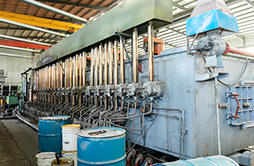Best Quality Fine Thread Hex Nuts for Enhanced Durability and Reliability in Various Applications
Aug . 14, 2024 19:17 Back to list
Best Quality Fine Thread Hex Nuts for Enhanced Durability and Reliability in Various Applications
Understanding Best Fine Thread Hex Nuts An Essential Component in Engineering
Fine thread hex nuts play a crucial role in various engineering and construction applications. As a vital component in fastening systems, these nuts provide enhanced stability and reliability in securing bolts and screws. In this article, we will delve into what fine thread hex nuts are, their advantages, applications, and why they are considered some of the best options in the fastening industry.
What Are Fine Thread Hex Nuts?
Fine thread hex nuts are hexagonal-shaped fasteners that are designed to be paired with fine thread bolts or screws. The term fine thread refers to the nature of the screw thread that has a smaller pitch compared to coarse threads. Pitch refers to the distance between the peaks of two adjacent threads. For instance, in a fine thread specification, the threads are closer together, which can lead to a higher degree of friction and a stronger joint when tightened.
These nuts are available in various materials such as stainless steel, carbon steel, and alloy steel, which grants them high resistance to corrosion and rust, making them suitable for diverse environments ranging from industrial settings to outdoor applications.
Advantages of Fine Thread Hex Nuts
1. Increased Strength The finer threads allow for greater engagement between the nut and bolt, providing a stronger connection. This is particularly beneficial in high-stress applications where vibration or movement may occur.
2. Better Tensioning Fine thread hex nuts can be tightened more precisely than coarse threads. This capability allows engineers to achieve a specific clamp load, ensuring parts remain securely fastened.
3. Resistance to Loosening Due to the increased friction created by the finer threads, these hex nuts are less likely to loosen over time. This characteristic is vital in dynamic environments where equipment may face changes in momentum.
4. Enhanced Adjustment Capability Fine thread nuts make it easier to incrementally adjust the tension on a bolt, allowing for precise changes without excessive re-torquing, which can often lead to hardware fatigue.
best fine thread hex nut

5. Reduced Risk of Cross-Threading Finer threads usually lend themselves to a smoother and more controlled engagement when installing, thereby minimizing the likelihood of cross-threading, which can damage both the nut and bolt.
Applications of Fine Thread Hex Nuts
Fine thread hex nuts are widely used in various sectors
- Automotive Industry They are frequent in automotive applications due to the need for reliable fastening under serious operational stresses.
- Construction In structural applications, where safety and strength are paramount, fine thread nuts ensure that connections remain tight and durable.
- Aerospace and Aviation These nuts are critical in aircraft assemblies, where lightweight yet strong components are necessary.
- Manufacturing Many manufacturing facilities use fine thread hex nuts in assembling machinery and equipment, due to their reliability under continuous use.
Conclusion
Fine thread hex nuts represent a vital aspect of modern fastening systems. Their distinctive design provides several advantages such as greater strength, precise adjustment, and increased resistance to loosening. It is essential for engineers and builders to consider these fine-threaded fasteners for their projects, as they offer enhanced performance and longevity. As industries evolve and the demand for robust components rises, fine thread hex nuts will undoubtedly remain a top choice in the fastening landscape. As a result, understanding their properties and applications helps ensure that every assembly is secure and efficient, contributing to the overall success of engineering projects.
Latest news
-
Premium Wire Bolts Suppliers | Durable & Reliable Fasteners
NewsAug.18,2025
-
Leading Metric Wood Screw Companies & Manufacturers
NewsAug.17,2025
-
Top Wire Bolts Suppliers - Quality & Durable Fasteners
NewsAug.15,2025
-
Trusted Wire Bolts Company | Quality Fasteners Supplier
NewsAug.14,2025
-
Reliable Wire Bolts Suppliers & Manufacturers for Global Needs
NewsAug.13,2025
-
High-Quality Bolts for Lawn Mower Handle Supplier
NewsAug.12,2025
